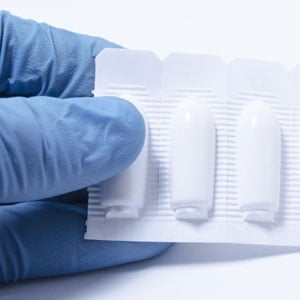
Once your doctor has established the extent of your haemorrhoids, he or she will do one of the following:
- Prescribe a local anaesthetic cream, a stool softener, pain pills and/or lifestyle changes (e.g. eating more fibre, drinking more water, taking a fibre supplement, and exercising more).
- If any signs of thrombosis are present, or the haemorrhoid is irreducible, your doctor is likely to refer you to a general surgeon who may perform an operation to reduce or remove the haemorrhoids.
Local (topical) anaesthetic creams
Local anaesthetics are medicines that remove sensation and pain. They can numb a particular area of the skin. These creams don’t cure haemorrhoids, but keep the symptoms under control.
Examples include:
- Anugesic suppositories
- Scheriproct ointment
- Remicaine jelly
Stool softeners
These medicines help to prevent constipation by adding moisture to stool, thus allowing strain-free bowel movements.
Pain pills
It’s important to use pain pills that don’t cause constipation. Avoid codeine and anything that contains tramadol.
Warm bath or sitz baths
Take a bath three times a day for 15 minutes.
Cold compress or ice packs
Apply cold compress or ice packs to relieve swelling.
Treating haemorrhoids in pregnancy
If you’re pregnant, it’s important to pay close attention to your fibre and fluid intake to cut your risk for haemorrhoids, which is very common in pregnancy.
Surgical options for haemorrhoids
Types of non-invasive surgery that can be done in a doctor’s office or out-patient setting to treat haemorrhoids include the following:
Rubber band ligation: A tiny rubber band is secured around the haemorrhoid, shutting off its blood supply. Within a week, the haemorrhoid shrinks and falls off.
Coagulation
- Infrared photocoagulation: Using a laser beam, a tiny burn painlessly seals off the end of the haemorrhoid, causing it to close off and shrink.
- Electrocoagulation: An electric probe is used to seal off the end of the haemorrhoid.
- Cryotherapy: This method uses extremely cold temperatures to seal off the diseased tissue.
In-hospital procedures
If the haemorrhoids persist, you may have to go for an in-hospital procedure. This may involve:
- Haemorrhoidectomy: This is the gold standard for advanced haemorrhoids and involves the complete removal of the haemorrhoid.
- Trans-anal haemorrhoidal artery ligation: A stitch is placed around each blood vessel with the aim of cutting off the blood supply to the haemorrhoid.
- Stapled haemorrhoidopexy: A circular stapler is used to treat prolapsed internal haemorrhoids. It doesn’t remove the haemorrhoid, but treats the lax tissue that has allowed the haemorrhoid to sag downwards, anchoring it back into place.
Course and prognosis
The medical management and office/outpatient-based treatment for haemorrhoids results in the resolution or improvement of symptoms.
If strong risk factors remain present, symptoms may recur. Thus, the symptoms of haemorrhoids can be controlled but not cured.
The greatest success rate is achieved with a haemorrhoidectomy. This is a much more painful treatment option than trans-anal haemorrhoidal artery ligation or stapled haemorrhoidopexy. However, both these surgical options have a much higher failure rate over the long term.
When to call a doctor
A visit to a doctor is indicated when:
- Rectal bleeding occurs for no apparent reason and isn’t associated with trying to pass stools.
- Rectal bleeding continues for more than one week.
- Rectal bleeding becomes heavy and/or it changes in colour from bright to dark red.
There’s a change in stool consistence or colour. - A lump near the anus gets bigger or becomes more painful.
- Pain and/or swelling due to haemorrhoids is severe.
- Moderate pain lasts longer than one week after home treatment.
- Tissue from inside the body sticks out of the anus and doesn’t return to normal after 3-7 days of home treatment.
- Any unusual material seeps from the anus.
Note that rectal bleeding can be a sign of cancer and other serious conditions. Bleeding from the rectum should, therefore, never be ignored.
Reviewed by Dr Britta Dedekind, General Surgeon at Christiaan Barnard Memorial Hospital. MBChB, FCS (SA), MMED (UCT). April 2018.




 Publications
Publications
 Partners
Partners















